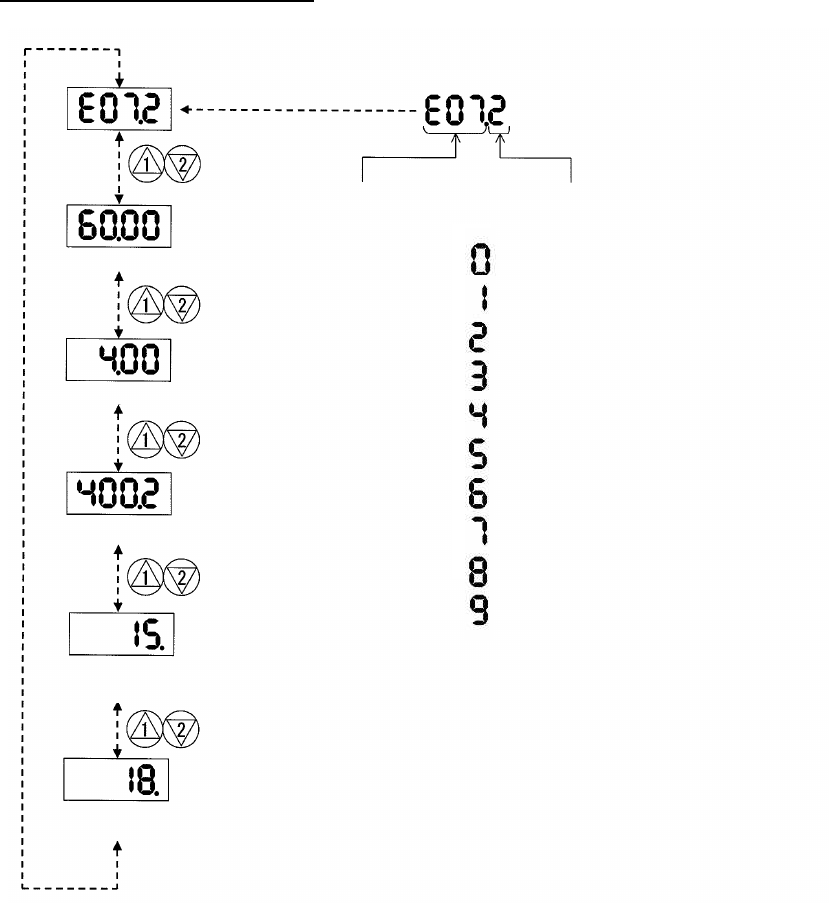
2 - 9
2.3 Trip conditions monitoring
: Resetting
: Initialization at power-on or with the reset terminal turned on
: Stopping the motor
: Decelerating or operating the motor at constant speed
: Accelerating the motor
: Status after receiving a zero-frequency operation command
: Starting the motor
: Applying DC braking to the motor
: Overload-restricted operation
: Forcible or servo-on operation
1) Trip factor
These digits indicate a trip factor.
See Section 5.1.1.
This digit indicates the inverter status at tripping.
2) Output frequency (Hz) at tripping
3) Output current (A) at tripping
4) DC voltage (V) across P and N terminals at tripping
5) Accumulated time (h) for which the inverter has
been running before tripping
6) Accumulated time for which the inverter power
has been on before tripping
Explanation of display
Note: The above descriptions indicate the inverter status at the
occurrence of tripping, which may not correspond to the apparent
operation of the motor.
(Example)
When the PID control is used or t
he frequency command is input as an
analog signal (a voltage or current signal), the inverter may repeat
acceleration and deceleration alternately at short intervals to make up
for the fluctuations of the analog signal, even if the motor is apparently
running at constant speed.
In such cases, the inverter status at tripping may not correspond to the
apparent operation of the motor.


















